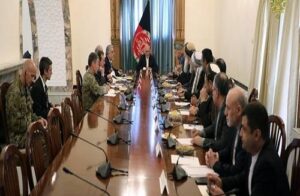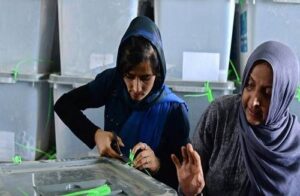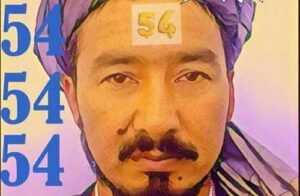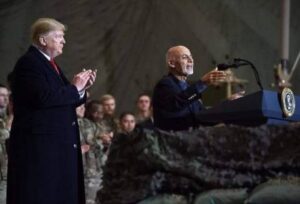
KABUL (SW): The NATO’s Senior Civilian Representative in Afghanistan, Ambassador Cornelius Zimmermann, has said fight in Afghanistan against terrorism has to be matched by talks.
He was addressing a press conference in Kabul on Saturday alongside the visiting Supreme Allied Commander Europe Gen. Curtis Scaparrotti, the Permanent Representatives to NATO from Germany (Ambassador Hans-Dieter Lucas); Italy (Ambassador Claudio Bisogniero); Turkey (Ambassador Mehmet Fatih Ceylan); and the United States (Ambassador Kay Bailey Hutchison), as well as Gen. John Nicholson, commander of the NATO-led Resolute Support mission in Afghanistan.
He emphasized the need for a political solution and for peace talks. He said, “we have to ask the Afghan government to complement the existing roadmap for security with a credible roadmap for peace. ‘Fight has to be matched by talks”, he said.
"We are in a win-win situation if we, all together, concentrate on protecting stability to this country,” said Ambassador Zimmermann. "A stable Afghanistan will be to the benefit of each and every player in this region — this needs to be understood — that ultimately a peaceful and stable Afghanistan will be to the betterment of us all.”
To a question posed by Salam Watandar regarding the alleged ties of Russia and Iran with the Taliban, Gen. Nicholson said Moscow and Tehran need to cooperate with the Nato for shared interests in Afghanistan such as counter-terrorism, counter-narcotics and peace and reconciliation efforts. About the so-called Islamic State of Khurasan (IS-K) militants, he said most of their fighters are former Tehreek-e-Taliban fighters who have aligned themselves with this militant group now.
"What we are seeing is a lowering of ambition of the Taliban,” said Gen. Nicholson. "Following the announcement of the U.S. South Asia Policy, the enemy made another decision to lower their ambition again and resort to terrorist attacks and to avoid the kind of fights where they have lost so heavily. So this exposes the hypocrisy of the Taliban, who every year talk about the desire to decrease civilian casualties and now are directly targeting civilians and taking credit for it.”
Ambassador Kay Bailey Hutchison said on the occasion that the international community would not going to stand by and let Afghanistan be riven with violence again. "So we hope that the Taliban will see that this is a no-win game for them unless they come to the table and become part of something that would make Afghanistan stronger. We have 29 allies who are speaking with one voice that peace in Afghanistan is a goal that will protect Afghans and it will protect Europe. It will protect America and Canada. Our North Atlantic Alliance is firm on this subject,” Hutchison added.
Germany, Italy, Turkey, and the United States are RS framework nations, meaning they lead train, advise and assist efforts in the regional Resolute Support commands. They also represent some of the largest troop contributors to Resolute Support and the former International Security Assistance Force. Afghan Security Forces took over the lead for combat operations from ISAF in January, 2015, and RS became exclusively a train, advise and assit mission.
Gen. Scaparrotti and the ambassadors also visited Train, Advise, Assist Commands North, West, and Capital. German-led TAAC-N in Mazar-e-Sharif includes 21 allied and partner nations and works closely with Afghan partners from the 209th Afghan National Army Corps, and the 707th and 808th Afghan National Police Zone. Italian-led TAAC-W in Herat advises Afghan partners from the ANA 207th Corps and 606th ANP Zone. Turkish-led TAAC-C advises Afghan forces securing Kabul, including the 111th Capital Division and Kabul City Police Center.
In July, 2018, a NATO Summit will be held in Brussels where heads of state and government from NATO Allies are expected to reaffirm NATO’s continued commitment to Afghanistan. NATO’s support to the Afghan Security Forces and institutions is key to supporting the implementation of Afghan President Ashraf Ghani’s roadmap to further develop the Afghan security forces and institutions. The roadmap, unveiled by the Afghan National Unity Government in early 2017, outlines a plan for securing and maintaining control of 80% of the population, as well as committing to continuing reforms on good governance within the Afghan security apparatus.
ENDS





